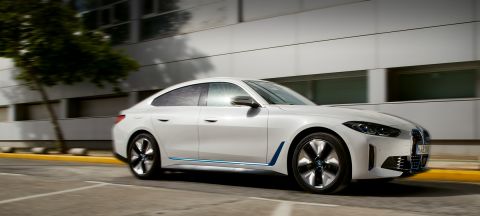Electric cars will capture majority US market share by 2030: Study
Electric vehicles (EVs) will dominate the US car market by 2030, with battery electric vehicles (BEVs) constituting a majority or near-majority of passenger cars sold in the country, according to a fresh study conducted by Carnegie Mellon & Yale University. Electric vehicles are picking up pace in the United States but the acceptance is slow compared to China and certain markets in Europe. The battery charging network has been growing at an impressive pace and recently Tesla Motors announced that it would open its supercharger network to other companies. This step can lead to a major change in attitude of people towards electric vehicles.
Conducted by the Carnegie Mellon & Yale University and published in the Proceedings of the National Academy of Sciences, the study indicates that consumers’ shift from internal combustion engines (ICEs) to EVs will accelerate in the coming years to capture a dominating share of the car market.
The researchers attributed the buyers’ inclination towards BEVs to a number of factors, including the declining cost of battery packs. Over the past few years, the cost of EV batterie have declined by around 10 per cent. Furthermore, the average driving range of EVs has increased by around 200 per cent, while energy efficiency improved by 15 per cent. Availability of BEVs in more models and trims also contributed a lot to the shift in customer preferences.
A market simulation conducted by the researchers suggested that electric cars and SUVs would capture nearly 50 per cent of the market by the end of current decade, assuming BEVs will be widely available. The study highlighted that technological improvements will play a key role in the wider adoption of EVs.
When all-electric cars, which are commonly known as BEVs, are offered alongside their conventional gas-guzzling counterparts, they enjoy a greater chance of dominating the market by 2030. More interestingly, BEVs are expected to be able to increase their market share even if incentives are rolled back.
The researchers also found that consumer choice analysis factors in the willingness-to-pay (WTP) estimate for cars. At present, buyers’ WTP is in the range of $6,600 to $12,000 for BEV counterparts of ICE-powered vehicles, depending on the make and model. By 2030, with likely improvements in range, costs & technology, the WTP estimate for electric cars is expected to fall between $5,300 and $8,000.
When it comes to specific models, the research paper indicates that by the end of current decade, byers might prefer the all-electric Nissan Leaf to the Versa EV, the Mini Electric to the Mini Cooper hatchback, and the BMW i4 to the 4 Series Gran Coupe. There is a great possibility that buyers will have a balanced preference for models like the Hyundai Kona and its battery-powered variant Kona Electric, and the Volvo XC40 and the battery-powered Volvo XC40 Recharge.
